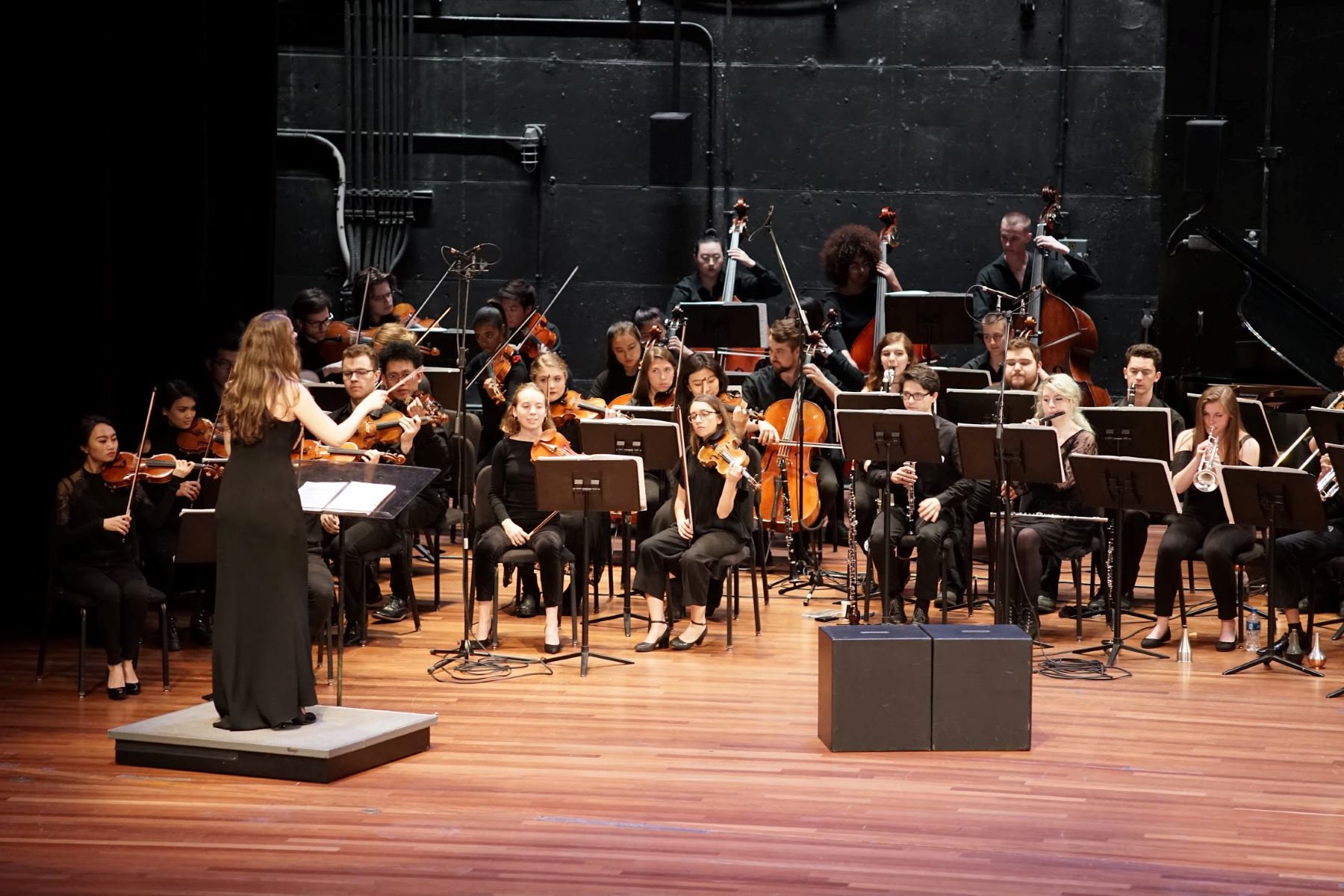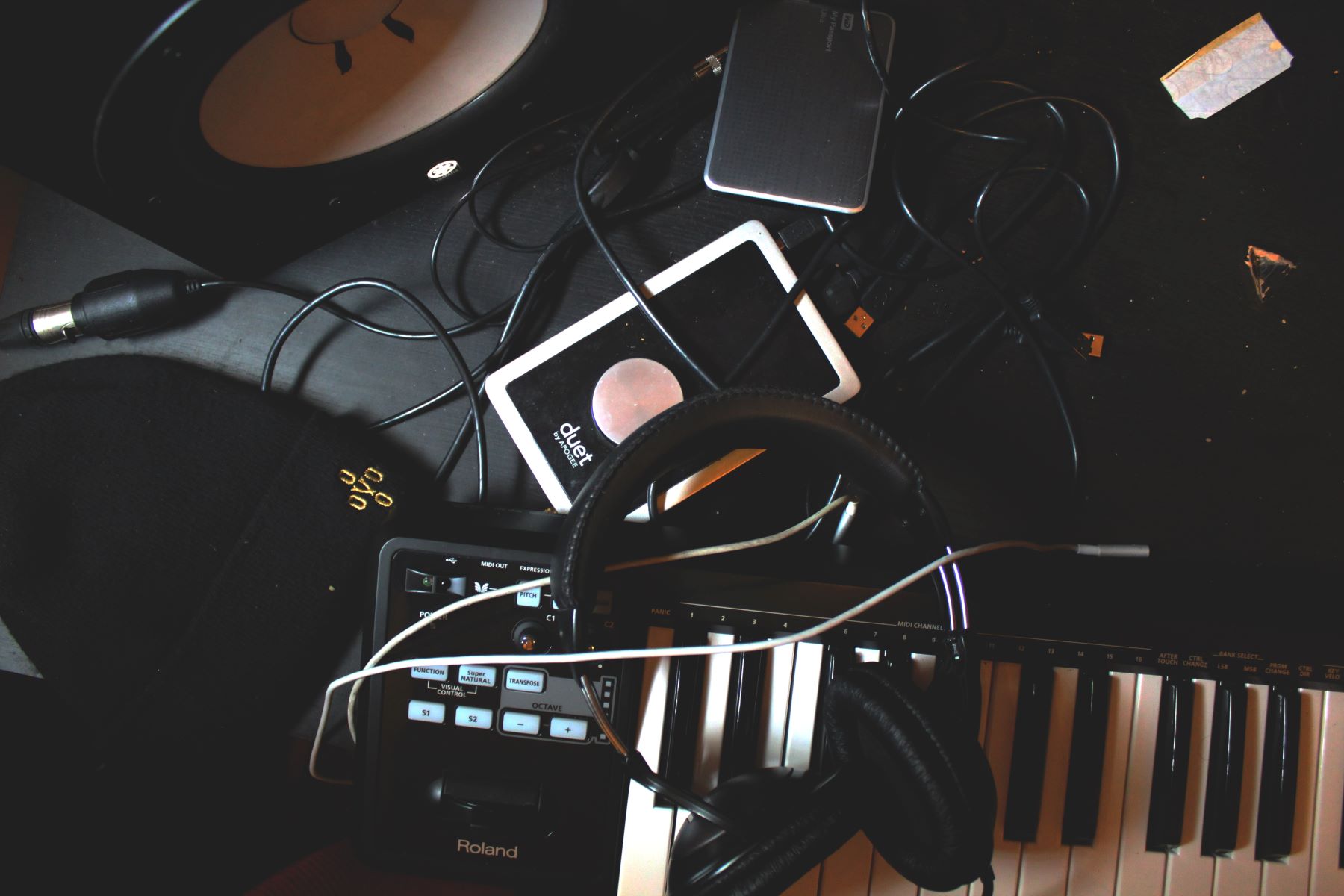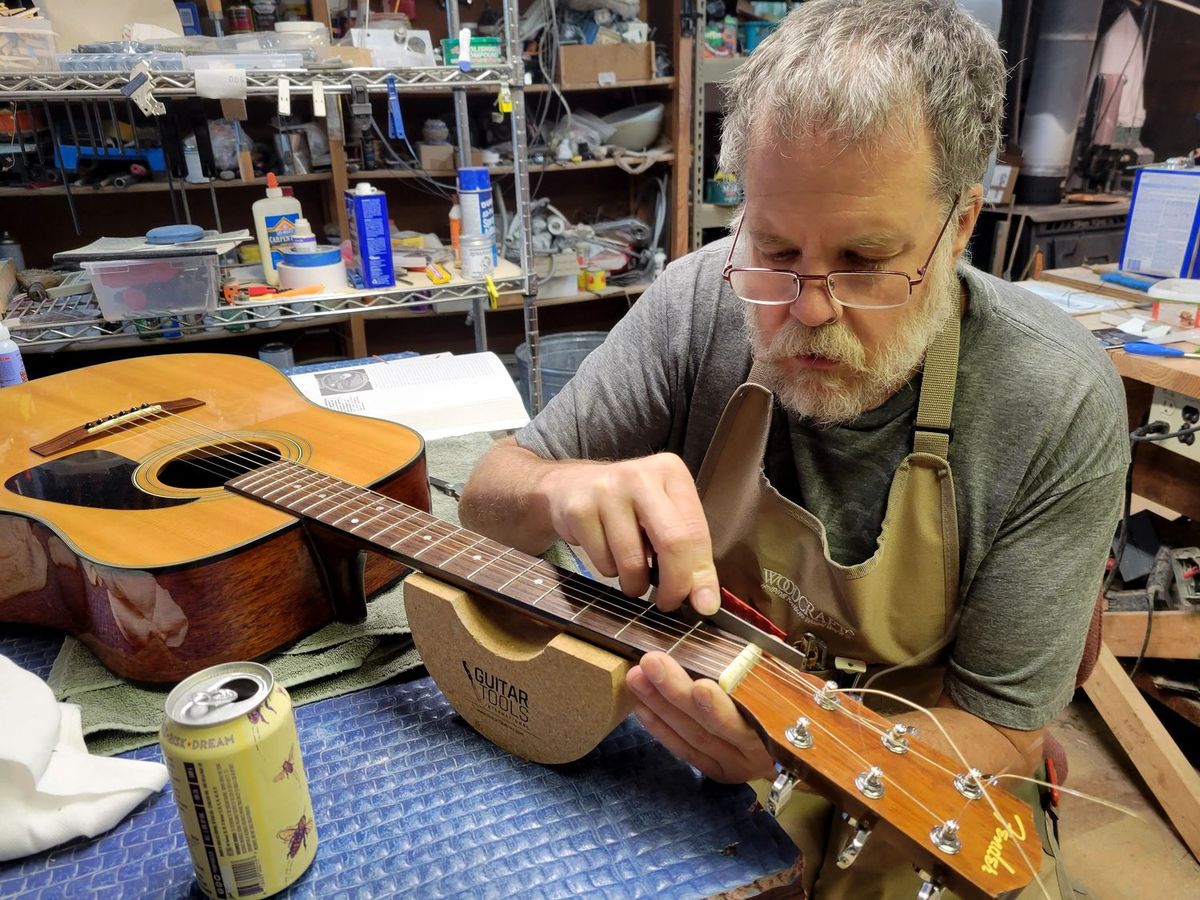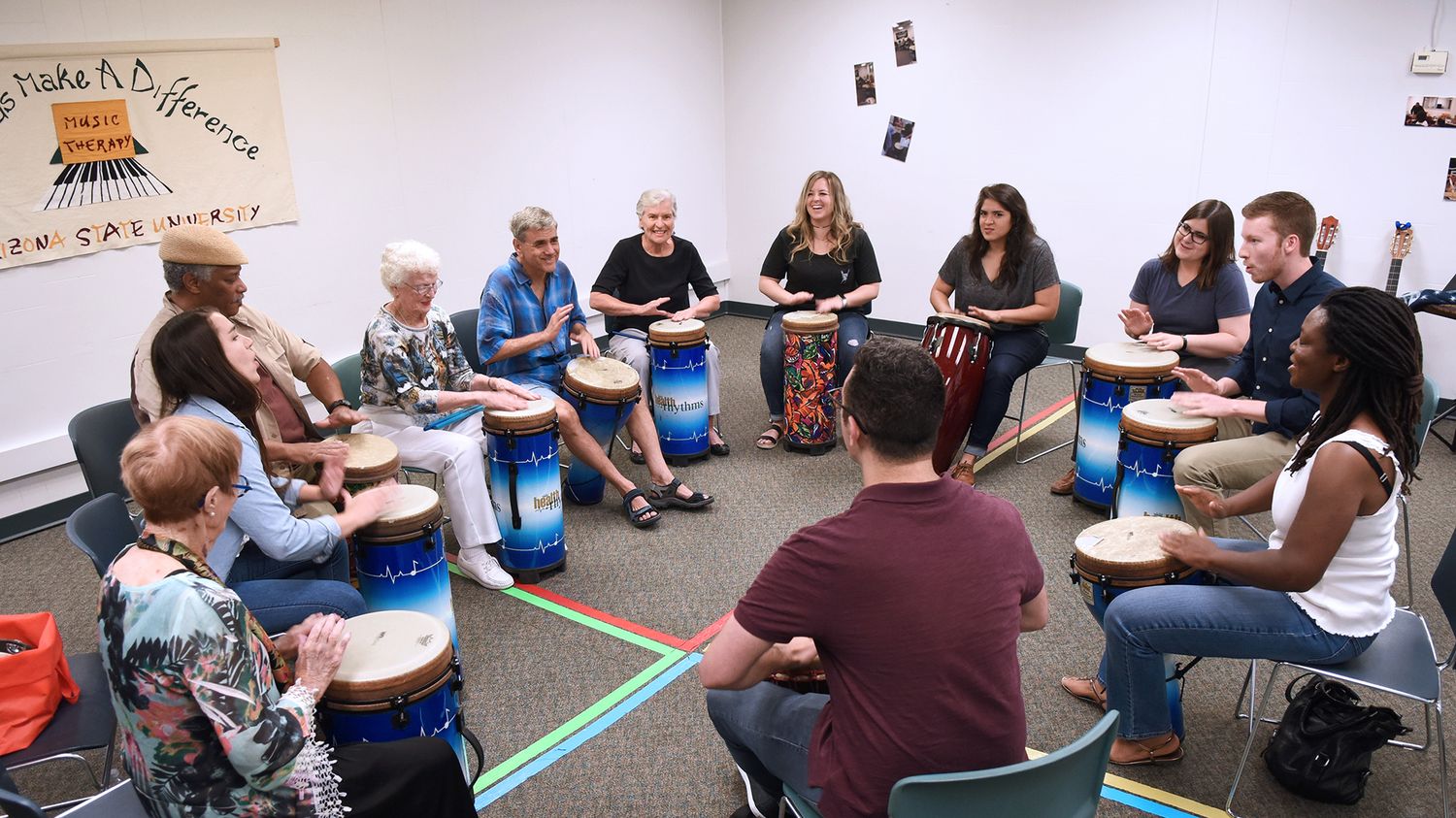Home>Production & Technology>Musician>How To Become A Session Musician


Musician
How To Become A Session Musician
Published: January 28, 2024
Learn how to become a skilled session musician and excel in the music industry. Enhance your career as a versatile and professional musician.
(Many of the links in this article redirect to a specific reviewed product. Your purchase of these products through affiliate links helps to generate commission for AudioLover.com, at no extra cost. Learn more)
Table of Contents
- Introduction
- What is a Session Musician?
- Developing Musical Skills
- Building a Diverse Repertoire
- Establishing Professional Relationships
- Preparing for Auditions
- Navigating the Studio Environment
- Recording Techniques for Session Musicians
- Working with Different Artists and Genres
- Collaborating with Producers and Engineers
- Managing Time and Deadlines
- Networking and Self-Promotion
- Finding Session Work Opportunities
- Handling the Financial Aspect
- Maintaining a Healthy Work-Life Balance
- Conclusion
Introduction
Being a musician is a dream for many, but not all musicians play in their own bands or tour the world as solo artists. Many talented musicians find their niche and build successful careers as session musicians. But what exactly is a session musician?
A session musician is a highly skilled and versatile musician who is hired to perform on recordings or live performances for other artists. They have the ability to adapt to various musical styles and genres, bringing their expertise to enhance the sound of the recording or live performance. Session musicians are often sought after for their ability to quickly learn and play music with precision, adding their own creative flair while supporting the artistic vision of the project.
Being a session musician requires not only exceptional musical ability but also professionalism, adaptability, and a strong work ethic. It is a challenging and rewarding career path that offers the opportunity to work with a diverse range of artists and genres.
In this article, we will delve into the world of session musicians and explore the skills, knowledge, and experiences required to become successful in this field. Whether you are a skilled instrumentalist or a multi-instrumentalist, this guide will provide you with valuable insights and practical tips to help you kickstart your journey as a session musician.
What is a Session Musician?
A session musician is a professional musician who is hired to perform on recordings or live performances for other artists. They are skilled instrumentalists with the ability to adapt to various musical styles and genres. Their main role is to bring their musical expertise and creativity to enhance the sound of a recording or live performance.
Session musicians are often hired by artists, record producers, or music directors who are looking for specific sounds or instruments to complete their projects. They may be called upon to play a variety of instruments, ranging from guitars and keyboards to drums, bass, or even orchestral instruments.
One of the key attributes of a session musician is their versatility. They need to have the ability to quickly learn and play a wide range of music styles, including jazz, rock, pop, country, classical, or any other genre that they may be asked to perform. This adaptability allows session musicians to seamlessly integrate into different musical projects and contribute their unique talents.
Session musicians may work in a professional recording studio, collaborating with the artist and the production team to create the desired sound. Alternatively, they may be hired to perform live, accompanying the artist or band during concerts or special events.
Being a session musician requires not only exceptional instrumental skills but also strong communication and teamwork abilities. They must be able to understand and interpret the artistic vision of the project, while also being responsive to any feedback or suggestions from the artist or producer.
In addition to their musical skills, session musicians also need to have a strong work ethic, as they often work on tight deadlines and may need to deliver multiple takes or performances to achieve the desired result. Punctuality, reliability, and professionalism are essential qualities for a successful session musician.
Overall, session musicians play a vital role in the music industry, contributing their talent and expertise to create high-quality recordings and memorable live performances. They are the unsung heroes behind the scenes, helping other artists bring their music to life.
Developing Musical Skills
As a session musician, having exceptional musical skills is crucial to your success. Here are some key areas to focus on when developing your musical abilities:
- Instrument Proficiency: Master your chosen instrument(s) and strive for technical proficiency. Take formal lessons, practice regularly, and constantly challenge yourself to learn new techniques and expand your repertoire.
- Music Theory: Develop a solid understanding of music theory, including scales, chords, harmony, and rhythm. This knowledge will enable you to quickly learn and interpret musical arrangements.
- Ear Training: Train your ears to recognize and identify different musical elements such as melodies, harmonies, and rhythms. This skill is invaluable in quickly learning and reproducing music accurately.
- Improvisation: Cultivate your improvisational skills by learning to play solos and improvising over various chord progressions. This will enhance your ability to adapt and create on the spot.
- Reading Music: Develop proficiency in sight-reading both standard notation and lead sheets. This skill is particularly important if you are working in a studio or performing with different artists who rely on sheet music.
- Rhythm and Timing: Aim for impeccable rhythm and timing. Focus on playing with a metronome and practicing various rhythmic patterns to ensure your playing is precise and tight.
Remember, the more versatile you are as a musician, the more opportunities you will have as a session musician. Consider exploring different musical genres, styles, and instruments to broaden your skill set and appeal to a wider range of potential clients.
In addition to honing your technical skills, it is crucial to develop good musical instincts and the ability to listen and blend with other musicians. This will enable you to seamlessly adapt to a variety of musical settings and collaborate effectively with other artists and producers.
Continual growth and self-improvement are essential as a session musician. Stay open to new musical experiences, seek feedback from experienced musicians, and never stop learning and refining your craft. The more you invest in your musical skills, the more valuable you will be as a session musician.
Building a Diverse Repertoire
As a session musician, having a diverse repertoire is essential. Clients often require musicians who can adapt to different musical styles and genres. Here are some tips for building a versatile and expansive repertoire:
- Listen and Study: Immerse yourself in a wide range of musical genres and styles. Listen to different artists and pay attention to the nuances of their music. Study the characteristic elements of each genre, including instrumentation, rhythms, chord progressions, and melodic characteristics.
- Learn Popular Songs: Familiarize yourself with popular songs across various genres. Focus on understanding the structure, chord progressions, and melodies. This will allow you to quickly learn and play popular songs when needed.
- Learn Classic Hits: Expand your repertoire by learning classic hits from different eras. These timeless songs are often requested in sessions or live performances and being familiar with them will make you a valuable asset.
- Experiment with Different Styles: Explore different musical styles such as jazz, blues, funk, rock, country, classical, or world music. Experiment with playing different styles on your instrument(s) to develop your versatility.
- Transcribe Music: Transcribing music is an excellent way to study and learn from the masters. Choose songs or solos that inspire you and transcribe them by ear. This process will deepen your understanding of musical phrasing, rhythm, and improvisation.
- Collaborate with Other Musicians: Jamming or collaborating with other musicians exposes you to new styles and approaches. It helps you learn how to blend with other musicians and develop your ability to adapt to different musical contexts.
- Create Your Own Arrangements: Experiment with creating your own arrangements or interpretations of popular songs. This will demonstrate your creativity and ability to add unique flair to the music.
Remember, building a diverse repertoire takes time and effort. Take it step by step and focus on mastering one style or genre at a time. Approach each new musical style with curiosity and dedication, and gradually expand your repertoire as you become more comfortable.
Having a broad repertoire not only increases your marketability as a session musician, but it also enhances your musical skills by exposing you to different musical expressions. Embrace the challenge of learning and playing music from various genres, and embrace the joy of becoming a versatile musician.
Establishing Professional Relationships
Establishing strong professional relationships is key to building a successful career as a session musician. Here are some strategies to help you cultivate productive and lasting connections:
- Networking: Attend music industry events, conferences, and workshops to connect with other musicians, producers, and industry professionals. Networking provides opportunities to showcase your skills, collaborate on projects, and establish valuable connections.
- Online Presence: Create a professional online presence through social media platforms like Instagram, Facebook, or LinkedIn. Share your performances, collaborate with other musicians, and engage with the music community to expand your reach and visibility.
- Collaborate with Local Artists: Engage with local artists and bands by offering your services for recording sessions or live performances. Collaborating with well-known local artists can enhance your reputation and lead to more opportunities.
- Musician Directories and Online Platforms: Register with musician directories and online platforms that connect session musicians with potential clients. Create a strong profile showcasing your skills, experience, and musical style.
- Become a Music Educator: Consider offering music lessons or workshops to aspiring musicians. Teaching not only provides additional income but also establishes you as an authority in your field and can lead to networking opportunities with students and fellow educators.
- Build Rapport with Producers and Engineers: Develop positive relationships with producers and engineers who frequently hire session musicians. Deliver exceptional performances, be professional, reliable, and easy to work with. Producers and engineers will likely recommend you to other clients if they have a positive experience working with you.
- Attend Open Mic Nights and Jam Sessions: Participate in open mic nights and jam sessions in your local music scene. This provides opportunities to meet and collaborate with other musicians, as well as showcase your skills to a live audience.
Remember, building professional relationships requires genuine connections and mutual trust. Treat every interaction as an opportunity to make a positive impression and nurture the relationship over time. Maintain professionalism, be reliable, and deliver high-quality performances consistently.
Lastly, always be open to new opportunities and collaborations. Embrace diversity in musical projects and work with a wide range of artists and genres to expand your network and build a strong reputation as a versatile and in-demand session musician.
Preparing for Auditions
As a session musician, auditions are an important part of your career. Here are some tips to help you prepare for auditions and stand out from the competition:
- Research the Project: Prior to the audition, gather as much information as possible about the project, including the musical style, requirements, and the artist’s previous work. This will help you tailor your performance to their specific needs.
- Practice the Material: If you receive specific songs or pieces to prepare, practice them rigorously. Focus on accuracy, technique, and interpretation. If possible, listen to recordings of previous performances to grasp the artist’s musical preferences.
- Warm Up: Before the audition, warm up your instrument and your voice. Spend time on scales, technical exercises, and playing through various musical styles to ensure your playing is at its best.
- Showcase Your Skills: Demonstrate your versatility by preparing a variety of musical styles in your audition repertoire. This will showcase your ability to adapt to different genres and increase your chances of fitting the artist’s vision.
- Be Punctual: Arrive early to the audition venue to allow time for any necessary setup and to eliminate stress. Punctuality showcases your professionalism and demonstrates your commitment to the project.
- Look Presentable: Dress appropriately for the audition. Your appearance should reflect the genre and style of the project, while still maintaining a professional image.
- Display Confidence: Enter the audition with confidence in your abilities. Maintain eye contact, engage with the panel (if present), and deliver a confident performance. Showcasing a positive attitude and belief in yourself can make a lasting impression.
- Be Flexible: Be prepared to adapt and make adjustments based on any feedback or direction provided during the audition. This shows your willingness to collaborate and work with the artist’s vision.
- Stay Professional: Be respectful and courteous to everyone you encounter during the audition process, including other musicians, production staff, and the artist. Professionalism is highly valued in the music industry.
- Follow Up: After the audition, send a thank-you note or email to express your appreciation for the opportunity and to reiterate your interest in the project. This helps to establish a positive and memorable impression.
Remember, auditions can be competitive, and not every audition will lead to a job. Take each audition as a learning experience and an opportunity to grow as a musician. Stay persistent, keep practicing, and embrace every chance to showcase your talent as a session musician.
Navigating the Studio Environment
The studio environment can be both exciting and demanding for a session musician. Here are some tips to help you navigate the studio environment with confidence:
- Prepare in Advance: Familiarize yourself with the studio layout, equipment, and recording process ahead of time. This will minimize any surprises and allow you to focus on your performance.
- Communication is Key: Clear and effective communication with the artist, producer, and engineer is crucial. Be attentive to their instructions, ask for clarification when needed, and be open to feedback.
- Be Adaptable: Studios may have different equipment and recording techniques. Be flexible and adaptable to their specific setup, and quickly familiarize yourself with any new gear or software.
- Stay Focused: Maintain concentration during recording sessions. Focus on delivering your best performance and be mindful of your playing, dynamics, and timing. Avoid distractions and stay engaged with the music.
- Efficiency and Time Management: Time is often limited in the studio. Come prepared and organized, ready to lay down your parts efficiently. Being well-rehearsed and able to perform in a few takes will save valuable time.
- Take Direction and Feedback: Be open to suggestions and direction from the producer or artist. Take feedback constructively and adapt your playing accordingly. Remember, the goal is to serve the song and bring the artist’s vision to life.
- Be Versatile and Creative: Embrace opportunities to contribute creatively to the recording process. Offer ideas and suggestions that showcase your musicality and enhance the overall sound.
- Stay Professional: Maintain professionalism throughout the recording process. Be punctual, respectful, and collaborative. Be prepared to wait during technical setups or while other musicians record their parts.
- Attention to Detail: Pay attention to small details, such as intonation, tone, and timing. These subtleties can make a significant difference in the final recording.
- Build Relationships in the Studio: Engage and connect with other musicians, engineers, and producers in the studio. Building relationships can lead to future collaborations and more opportunities as a session musician.
Remember, the studio environment can be fast-paced and intense, but it is also a space for creativity and collaboration. Stay focused, adapt quickly, and embrace the challenges and rewards that come with recording in the studio as a session musician.
Recording Techniques for Session Musicians
As a session musician, understanding recording techniques is essential to deliver high-quality performances in the studio. Here are some important aspects to consider when recording:
- Mic Placement: Experiment with microphone placement to achieve the desired sound. This includes finding the ideal distance and angle from your instrument or amplifier to capture the best tone and balance.
- Focus on Tone: Pay attention to your instrument’s tone and ensure it translates well in the recording. Experiment with different settings, such as amp settings for guitarists or drum tuning for percussionists, to achieve the desired sound.
- Dynamic Range: Learn how to control your dynamics during recording. Understand when to play softly and when to play with intensity, allowing the producer to capture the desired range of expression.
- Playing to Click Track: Be comfortable playing to a click track or metronome to maintain consistent timing throughout the recording process. This is especially important when multiple tracks are being recorded separately and need to be synchronized.
- Utilize Headphones: When recording in a studio environment, wearing headphones allows you to hear your instrument clearly in the mix and ensures that you are in sync with other musicians or backing tracks.
- Take Advantage of Overdubs: Overdubbing involves recording additional layers or parts on top of existing tracks. This technique allows for more complex arrangements or harmonies. Be prepared to play precisely and match the previous performances when overdubbing.
- Consider Room Acoustics: Be aware of the room’s acoustic characteristics and adjust your playing accordingly. Some rooms may have natural reverberation, while others may require artificial reverb or room treatment to achieve a desired sound.
- Collaborate with the Engineer: Work closely with the recording engineer to discuss your desired sound and any specific technical preferences. This collaboration ensures that you are both working towards the same sonic vision.
- Use Studio Effects Sparingly: Know when to incorporate studio effects, such as reverb, delay, or modulation, into your performance. Use them tastefully and in a way that enhances the overall sound rather than overpowering it.
- Stay Consistent: Maintain consistency in your playing throughout the recording process. This includes matching the tone, dynamics, and playing style from take to take, ensuring seamless transitions within the final mix.
Recording techniques can vary depending on the specific project and genre, so be open to experimentation and guidance from the producer and engineer. Ultimately, your goal as a session musician is to deliver the best possible performance that serves the song and brings the artist’s vision to life in the recording.
Working with Different Artists and Genres
As a session musician, you will likely encounter a diverse range of artists and genres throughout your career. Here are some tips to help you navigate working with different artists and genres successfully:
- Research and Familiarize Yourself: Before working with a new artist or delving into a new genre, take the time to research and familiarize yourself with their music. Understand the stylistic elements, instrumentation, and the artist’s unique sound.
- Adapt to Musical Styles: Flexibility is key when working with different artists and genres. Be receptive to new musical styles and adapt your playing to fit the specific requirements of each project. Pay attention to the nuances and intricacies of the genre to ensure an authentic and accurate representation of the style.
- Learn from the Artist: Be open to learning from the artist themselves. Take cues from their interpretations and musical preferences. Develop a keen sense of listening and observe their artistic vision, incorporating their guidance into your performance.
- Stay Versatile: Cultivate a versatile skill set that allows you to play different instruments, musical styles, and genres. This versatility will make you more marketable and increase the range of opportunities available to you as a session musician.
- Collaborate and Communicate: Collaboration is crucial when working with different artists. Communicate openly and effectively with the artist, producer, and fellow musicians to ensure a cohesive and successful outcome. Be receptive to feedback and suggestions, and contribute your own creative ideas to the process.
- Embrace Creativity: Embrace the opportunity to explore and experiment with different musical styles and genres. Allow your creativity to shine through while respecting the vision and requirements of the artist and the music.
- Attention to Detail: Pay attention to the subtle nuances and details of each genre. Focus on mastering the characteristic techniques, phrasing, and tonal characteristics that make the music unique. This level of attention to detail will greatly enhance your performance.
- Develop a Musical Toolkit: Expand your musical toolkit by learning and incorporating techniques, scales, and musical elements from different genres into your playing. This will add depth and richness to your performances regardless of the genre you are working in.
- Adapt to Personalities: Artists may have different personalities and communication styles. Be adaptable and professional in your interactions, adapting to their preferences and establishing a positive working relationship.
- Challenge Yourself: Push yourself outside of your comfort zone by taking on projects that are outside your usual genre or style. This will expand your skills, broaden your musical horizons, and open doors to new opportunities.
Working with different artists and genres as a session musician is an enriching experience that allows you to grow as a musician. Embrace the diversity and challenges that come with each project, continually refining your craft and developing a broad musical palette.
Collaborating with Producers and Engineers
Collaborating effectively with producers and engineers is essential as a session musician. Here are some tips to establish productive and successful collaborations:
- Establish Clear Communication: Open and clear communication is crucial when working with producers and engineers. Understand their expectations, artistic vision, and technical requirements for the project. Ask questions, clarify any doubts, and ensure everyone is on the same page.
- Respect Their Expertise: Recognize and respect the expertise of producers and engineers. They have a deep understanding of the recording process and bring valuable insights to the project. Be open to their suggestions, guidance, and creative ideas.
- Be Prepared and Professional: Come prepared to the studio and maintain a professional demeanor. Arrive on time, be organized, and have a solid understanding of the material. Show respect for their time and expertise by delivering high-quality performances consistently.
- Active Listening: Actively listen to the feedback and direction provided by producers and engineers. Be receptive to their input and strive to incorporate their guidance into your performance. Show flexibility and willingness to adjust and refine your playing as needed.
- Collaborate in the Creative Process: Offer your creative ideas and contribute to the overall vision of the project. Share your musical instincts and ideas with the producer and engineer, while still respecting their authority. Collaborate in finding the best approaches to enhance the recording.
- Show Adaptability: Be flexible and adaptable to changes or adjustments requested by the producer or engineer. This may include modifications in your playing style, tone, or arrangement. Embrace their input as an opportunity to grow and explore new creative paths.
- Trust and Build Relationships: Trust is crucial in any collaboration. Invest time and effort in building strong relationships with producers and engineers. Establishing trust and rapport will enhance the dynamics and contribute to a more productive and enjoyable working environment.
- Embrace Technology: Familiarize yourself with the studio equipment, recording software, and technology used by producers and engineers. Stay up to date with the latest innovations and trends in recording technology to effectively communicate and contribute to the recording process.
- Feedback and Adaptation: Be receptive to feedback during the recording process. Take constructive criticism positively and make necessary adjustments to improve your playing. This willingness to adapt and grow as a musician will contribute to a successful collaboration.
- Express Gratitude: After the recording process is complete, express gratitude to the producer and engineer for their contributions. Thank them for their time, expertise, and guidance throughout the project. This gesture acknowledges their efforts and strengthens the relationship for future collaborations.
Collaborating harmoniously with producers and engineers not only enhances the quality of the recording but also opens avenues for future collaborations. By fostering a spirit of teamwork, respect, and open communication, you can create a positive and productive working environment that elevates the artistic vision of the project.
Managing Time and Deadlines
Time management is crucial for a session musician to meet deadlines and ensure a smooth workflow. Here are some strategies to effectively manage time and meet project requirements:
- Create a Schedule: Plan your practice sessions, rehearsals, and recording sessions in advance. Create a schedule that allows you to allocate time for different projects and tasks, ensuring that you have enough time to prepare and meet deadlines.
- Break Down Projects: Break down larger projects into smaller tasks or milestones. This helps you track progress, prioritize tasks, and ensures that each aspect of the project is completed on time.
- Set Realistic Goals: Assess the scope of each project and set realistic goals and deadlines. Consider the complexity of the material, your current workload, and any other commitments you have. Avoid overcommitting and allow enough time for adequate preparation.
- Manage Practice Time: Allocate dedicated practice time for each project. Focus on the areas that require the most attention, such as challenging passages or technical aspects of the music. Time spent practicing effectively will improve your efficiency in the recording process.
- Building Buffer Time: Factor in buffer time in your schedule to account for unexpected delays or revisions. This allows you to have some flexibility and ensures that you can meet unexpected changes or last-minute requests without compromising the quality of your work.
- Use Productivity Techniques: Utilize productivity techniques such as the Pomodoro Technique or time-blocking to maximize efficiency. These techniques help you stay focused during practice or recording sessions, allowing you to complete tasks more effectively.
- Stay Organized: Keep your files, sheet music, and gear organized. This facilitates easy access to the materials you need, reducing time spent searching for essential items during recording sessions.
- Communicate Availability: Clearly communicate your availability and any scheduling constraints with producers and artists. This avoids conflicts and ensures that everyone is on the same page regarding project timelines.
- Ask for Help: If you find yourself overwhelmed with deadlines or an excessive workload, don’t hesitate to ask for help. Consider enlisting the assistance of fellow musicians or hiring additional musicians to share the load and meet project requirements.
- Prioritize Self-Care: Taking care of yourself is essential for maintaining productivity and meeting deadlines. Get enough rest, eat well, and engage in activities that help you relax and recharge. Burnout can negatively impact your performance and ability to deliver on time.
Remember, effective time management is a skill that develops with practice. Continuously evaluate and refine your approach to managing time and deadlines to ensure a smooth and successful workflow as a session musician.
Networking and Self-Promotion
In the competitive world of session musicianship, networking and self-promotion play a vital role in expanding your opportunities and building a successful career. Here are some strategies to effectively network and promote yourself as a session musician:
- Attend Music Events: Attend music conferences, workshops, industry events, and local gigs to connect with fellow musicians, producers, and industry professionals. Engage in conversations, exchange contact information, and build meaningful relationships.
- Online Presence: Create a professional online presence through a website, social media platforms, or professional networking sites like LinkedIn. Showcase your skills, share your performances, collaborate with other musicians, and engage with the music community to increase your exposure.
- Showcase Your Work: Create a portfolio that includes high-quality recordings, videos of your performances, and testimonials from clients or artists you have worked with. This portfolio acts as a visual representation of your abilities and can be shared with potential clients or industry professionals.
- Collaborate with Local Artists: Collaborate with local artists and bands by offering your services for recording sessions or live performances. This not only builds relationships but also expands your network within the local music scene.
- Industry Directories and Online Platforms: Register with musician directories and online platforms that connect session musicians with potential clients. Build a strong profile that highlights your skills, experience, and musical style.
- Seek Referrals: Encourage satisfied clients or industry professionals to refer you to others. A word-of-mouth recommendation can carry significant weight and open doors to new opportunities.
- Offer Music Workshops/Lessons: Consider offering music workshops or lessons to aspiring musicians. This positions you as an expert in your field and provides opportunities to network with students and fellow musicians.
- Collaborate with Music Schools/Colleges: Reach out to music schools or colleges to establish partnerships or guest musician opportunities. This exposes you to a younger generation of musicians and can lead to future collaborations or recommendations.
- Build Relationships with Producers and Engineers: Cultivate relationships with producers and engineers who frequently hire session musicians. Provide exceptional performances, be reliable, and develop a rapport based on trust and professionalism.
- Professionalism Is Key: Display professionalism in all your interactions. Be punctual, reliable, and courteous to everyone you encounter in the industry. Positive professional relationships can lead to repeat collaborations and referrals.
- Stay Engaged with the Music Community: Engage with online forums, discussion groups, and social media communities focused on music production or session work. Contribute valuable insights, participate in discussions, and establish yourself as an active and knowledgeable member of the music community.
- Advertise your Services: Invest in targeted advertising to reach potential clients. Use online platforms, industry magazines, or local publications to promote your services as a session musician.
- Continued Growth and Learning: Stay updated with the latest trends in music production and session work. Attend workshops and continuing education programs to enhance your skills and showcase your commitment to professional growth.
- Stay Authentic: While self-promotion is important, don’t compromise your artistic integrity. Stay true to your style and musical values, and focus on showcasing your unique abilities and contributions as a session musician.
Remember, networking and self-promotion require consistent effort and perseverance. Be proactive in building relationships, continually refine your self-presentation, and seize opportunities to showcase your talent and professionalism. Through effective networking and self-promotion, you can increase your visibility, forge valuable connections, and advance your career as a session musician.
Finding Session Work Opportunities
Securing session work opportunities as a musician requires proactive efforts to connect with potential clients and stay informed about available projects. Here are some strategies to help you find session work opportunities:
- Network within the Music Community: Build a strong network of contacts within the music industry by attending events, workshops, and conferences. Engage with fellow musicians, producers, and industry professionals to increase your chances of hearing about potential session work opportunities.
- Engage Online: Utilize online platforms and resources specifically designed for musicians to find session work opportunities. Websites and forums dedicated to hiring session musicians can be valuable sources for connecting with artists in need of your skills.
- Join Musicians’ Associations: Become a member of musicians’ associations or unions in your area. These organizations often have resources and job listings specifically targeted at session musicians.
- Collaborate with Local Studios and Recording Engineers: Reach out to local studios and recording engineers to express your interest in session work. These professionals often work closely with artists who may require session musicians and can refer you to potential clients.
- Connect with Music Producers: Develop relationships with music producers and let them know that you are available for session work. Producers are frequently in need of talented musicians to contribute to their projects.
- Utilize Social Media: Leverage the power of social media platforms to showcase your skills and availability for session work. Regularly share your performances, collaborate with other musicians online, and engage with the music community to increase your visibility.
- Offer Your Services to Local Artists: Reach out to local artists who may require session musicians for recording or live performances. Offer your services and showcase your versatility to attract potential collaborations.
- Attend Open Jams and Jam Nights: Participate in open jams or jam nights at local music venues. These events not only provide an opportunity to network with other musicians but also showcase your skills to potential clients who may be looking for session musicians.
- Stay Up to Date with Music Industry Publications: Regularly read music industry magazines and online publications to stay informed about upcoming projects and potential session work opportunities. Look for advertisements or announcements seeking session musicians.
- Create a Portfolio: Develop a professional portfolio that highlights your skills, past collaborations, and recordings of your performances. Share this portfolio with artists, producers, and industry professionals to showcase your expertise as a session musician.
- Build Relationships with Music Schools and Music Teachers: Connect with music schools, colleges, and music teachers in your area. They may have students or clients who require session musicians for their projects or performances.
- Offer to Substitute or Fill-in for Bands and Artists: Reach out to bands and artists who may need temporary replacements or fill-in musicians for specific shows or recording sessions. This can lead to future session work opportunities and connections within the music community.
- Proactively Reach Out: Be proactive and reach out to artists, producers, or music directors whose work aligns with your musical style. Express your interest and availability for session work, and provide them with your portfolio or recordings to showcase your skills.
Consistency and perseverance are key when looking for session work opportunities. By actively networking, utilizing online platforms, and staying connected within the music community, you increase your chances of finding session work and establishing a successful career as a session musician.
Handling the Financial Aspect
Managing the financial aspect of your career as a session musician is crucial to ensure sustainability and success. Here are some important considerations to help you handle the financial aspect effectively:
- Set Clear Rates: Determine your rates based on factors such as your experience, skill level, and the scope of the project. Clearly communicate your rates to clients upfront, and be confident in valuing your contribution as a session musician.
- Create Contracts: Utilize written contracts for each project to outline the terms and conditions, including payment arrangements, project scope, and timelines. This helps protect both parties and ensures clarity and accountability in financial matters.
- Invoice Promptly: Send invoices promptly after completing a project or agreed-upon milestone. Clearly outline the services provided and the amount owed, and specify payment terms and due dates.
- Establish Payment Terms: Decide on payment terms, such as upfront deposits, milestones, or full payment upon completion. Ensure the terms are agreed upon and clearly stated in your contract to avoid any confusion or payment delays.
- Track Your Income and Expenses: Maintain diligent records of your income and expenses. Use accounting software or tools to track payments received, project-related expenses, and any applicable tax deductions. This helps with financial planning and ensures accurate tax reporting.
- Save for Taxes and Retirement: Set aside a portion of your income for taxes and consider saving for retirement. Consult with a financial advisor or accountant to help you determine the ideal allocation and strategies for tax payments and retirement savings.
- Negotiate Royalties and Publishing Rights: Familiarize yourself with royalty and publishing rights in the music industry. Negotiate fair compensation and ensure that you understand the terms and implications of any royalty or publishing agreements.
- Consider Membership in Performance Rights Organizations: Join performance rights organizations (PROs) such as ASCAP, BMI, or SESAC, depending on your country. PROs help collect and distribute royalties owed to musicians for performances, broadcasts, and other licensed uses of their music.
- Consult with a Financial Advisor: Seek advice from a financial advisor who specializes in working with musicians. They can provide guidance on financial planning, tax strategies, and investment options specific to your career as a session musician.
- Manage Your Budget: Develop a budget to track your income and expenses. This helps you control spending, prioritize financial goals, and ensure that you have sufficient funds for personal and professional needs.
- Consider Insurance: Explore insurance options, such as instrument or liability insurance, to protect your assets and mitigate any potential financial risks associated with your work as a session musician.
- Keep Learning: Continuously educate yourself about personal finance and money management. Attend workshops or seminars, read books or articles, and stay informed about financial strategies that can benefit your career as a session musician.
Remember, sound financial management is crucial for the long-term sustainability of your career. By setting clear rates, maintaining proper financial records, and planning for taxes and retirement, you can navigate the financial aspect of being a session musician with confidence and peace of mind.
Maintaining a Healthy Work-Life Balance
Maintaining a healthy work-life balance is vital for your overall well-being as a session musician. Here are some strategies to help you maintain a healthy balance between your work and personal life:
- Prioritize Self-Care: Take care of your physical, mental, and emotional well-being. Get enough sleep, eat well, exercise regularly, and engage in activities that help you relax and recharge.
- Set Boundaries: Establish clear boundaries between your work and personal life. Define specific working hours and allow yourself time for rest, leisure, and spending quality time with family and friends.
- Plan Regular Breaks: Schedule regular breaks throughout the day, week, or year to avoid burnout. Take time off to recharge, pursue personal interests, and engage in activities unrelated to music.
- Delegate Non-Musical Tasks: Delegate or outsource non-musical tasks such as administrative work, bookkeeping, or marketing to free up more time for music and personal life. This allows you to focus on your craft and maintain a healthy balance.
- Learn to Say No: It is important to learn to say no to excessive work commitments that may overwhelm your schedule or compromise your well-being. Choose projects wisely and prioritize those that align with your goals and values.
- Communicate with Clients: Clearly communicate your availability and expected turnaround times to clients. Set realistic expectations regarding response times and project deadlines to manage workloads effectively and prevent unnecessary stress.
- Practice Time Management: Develop effective time management skills to optimize your productivity and allocate time for both work and personal activities. Use techniques such as prioritization, time blocking, and avoiding multitasking to enhance focus and efficiency.
- Engage in Hobbies Outside of Music: Cultivate hobbies or interests outside of music to help you unwind and recharge. Engaging in activities unrelated to your work can enhance creativity and provide a much-needed break from the demands of being a session musician.
- Seek Support and Connection: Connect with other musicians who understand the challenges of the industry. Share experiences, tips, and support to help you navigate the demands of your career and maintain a healthy work-life balance.
- Reflect and Reevaluate Regularly: Regularly reflect on your work-life balance and reevaluate your priorities. Ask yourself if you are dedicating enough time to personal activities and relationships, and make adjustments as necessary to maintain equilibrium.
- Be Present in the Moment: When you are off work, practice being present in the moment. Engage fully in activities with loved ones, commit to personal hobbies or interests, and let go of work-related thoughts during your time off.
- Unplug and Disconnect: Take intentional breaks from technology and social media to reduce distractions and promote mental well-being. Engaging in offline activities can help recharge and foster a healthier work-life balance.
- Celebrate and Acknowledge Achievements: Celebrate milestones and achievements in your career. Take time to acknowledge your hard work and the progress you have made, which can provide a sense of fulfillment and motivation to maintain a healthy work-life balance.
Maintaining a healthy work-life balance is an ongoing process that requires intention, discipline, and self-awareness. By prioritizing self-care, setting boundaries, and engaging in activities outside of music, you can sustain a fulfilling and balanced life both personally and professionally as a session musician.
Conclusion
Becoming a successful session musician requires a unique set of skills, dedication, and a deep passion for music. Through this comprehensive guide, we have explored the ins and outs of being a session musician, from developing your musical skills to navigating the studio environment, collaborating with industry professionals, finding work opportunities, and managing the financial aspect. By focusing on building a diverse repertoire, establishing professional relationships, and continuously honing your craft, you can position yourself for success in the competitive world of session work.
Remember, as a session musician, it is essential to embrace versatility, be adaptable, and maintain professionalism in every aspect of your work. Each project brings its unique challenges and opportunities, and it is through your commitment, creativity, and ability to collaborate that you can deliver exceptional performances and contribute to the success of every project.
Additionally, maintaining a healthy work-life balance is crucial for your well-being and sustained success. Prioritize self-care, set boundaries, and engage in activities outside of music to recharge and maintain a sense of fulfillment in both your personal and professional life.
Lastly, never stop learning and growing as a musician. Continually seek new experiences, expand your musical knowledge, and stay connected with the ever-evolving music industry. Through networking, self-promotion, and a dedication to your craft, you can carve a rewarding and fulfilling career as a session musician.
So, go out there, embrace the challenges, make meaningful connections, and let your musical talent shine as you embark on an exciting journey as a session musician!











